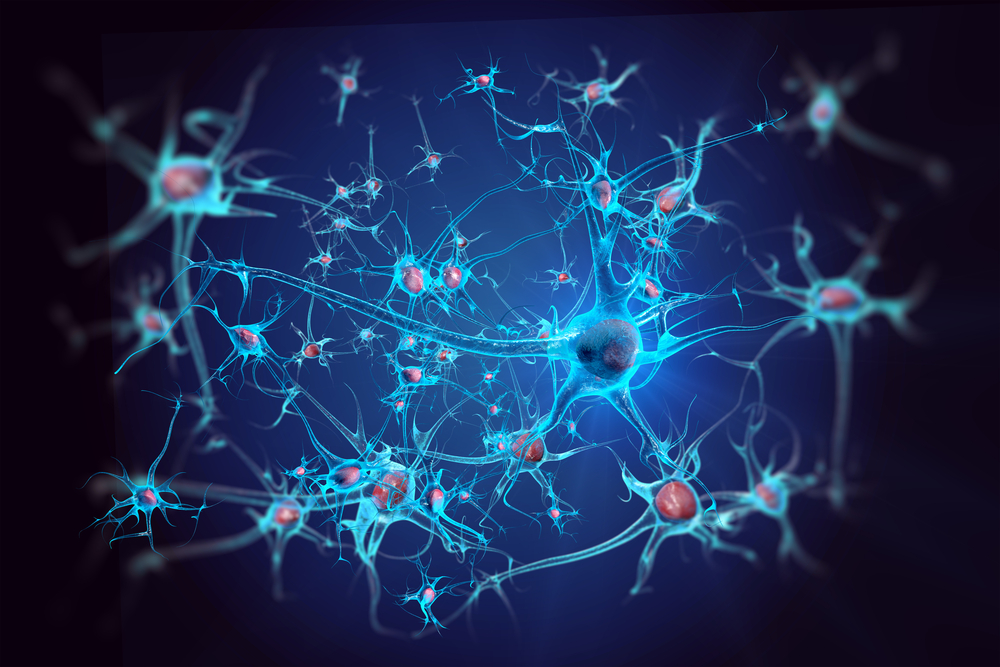Genetic Variant Linked to MS Affects More Than Immune Cells, Study Finds

A genetic variant associated with an increased risk of multiple sclerosis (MS) due to its impact on certain immune system cells can also affect brain cells called astrocytes, a study shows.
Reported in the study, “Enhanced astrocyte responses are driven by a genetic risk allele associated with multiple sclerosis,” in the journal Nature Communications, these findings suggest that the malfunctioning of these brain cells may also contribute to MS susceptibility.
More than 200 genetic variants have been identified as risk factors for developing MS, with several of them linked to changes in lymphocytes — cells that mediate the immune system’s overreactive response that characterizes MS.
However, whether genetic variants can also affect brain cells, affecting the function of the central nervous system (brain and spinal cord), remains unclear.
Researchers at Yale University looked at how a particular MS risk variant called rs7665090G, which increases the expression of a key autoimmunity mediator called NF-κB in lymphocytes, may change the function of astrocytes. Astrocytes are a group of star-shaped cells that provide neurons with energy, and work as a platform to clean up their waste. They also have other functions within the brain, such as regulating blood flow and inflammation.
“NF-κB plays a critical role in autoimmunity, including in MS, where 18% of all allelic MS risk variants are estimated to affect or intersect with the NF-κB signalling pathway,” the researchers wrote.
NF-κB was previously shown to be capable of activating astrocytes which, once activated, become a source of chemoattractants, substances that can attract cells of the immune system.
Moreover, two previous studies showed that inhibiting NF-κB-mediated activation of astrocytes decreased the infiltration of immune cells into the central nervous system and the damage in the experimental autoimmune encephalomyelitis (EAE) mouse model, an established model to study MS.
Researchers used a technique in which a mature human cell can be reprogrammed into induced pluripotent stem cells (iPSCs). These cells maintain the potential to become any cell type in the body, and in this case, the researchers induced them to become astrocytes.
They generated iPSC-derived astrocytes from 12 MS patients and healthy controls carrying either the risk variant (rs7665090GG) or a protective variant, called rs7665090AA.
Results showed that by treating these cells with two molecules that activate NF-κB, astrocytes carrying the risk variant had significantly greater NF-κB activation. Moreover, researchers observed that astrocytes carrying the risk variant also had increased levels of several NF-κB target genes, which facilitate lymphocytes’ recruitment and activation.
To determine if the risk variant had an effect in real cases of MS, researchers analyzed a total of 10 brain samples with clear lesions in the brain’s white matter from deceased MS patients carrying either the risk or protective variant.
Enlarged astrocytes in lesions positive for the risk variant showed increased levels of NF-κB-target genes, similar to what was seen with the in vitro iPSC-derived astrocytes. Non-activated astrocytes located in the vicinity of the lesions and in normal white matter showed low levels of NF-κB signaling.
Moreover, compared with the protective variant, the number of immune T-cells (namely CD3-positive T-cells) were significantly higher in lesions with the risk variant.
“The risk variant we studied instructs brain cells to lower the barrier for immune cells to enter the brain, which is an important first step in the disease,” David Pitt, MD, associate professor of neurology and the study’s lead author, said in a Yale press release. “This understanding increases the number of possible targets available for treatment moving forward.”
The team concluded that their study “provides evidence for the first time that genetic variants associated with MS risk directly perturb CNS [central nervous system] cell functions.” They also suggested that the “perturbed CNS cell function aids in establishing local autoimmune inflammation.”






